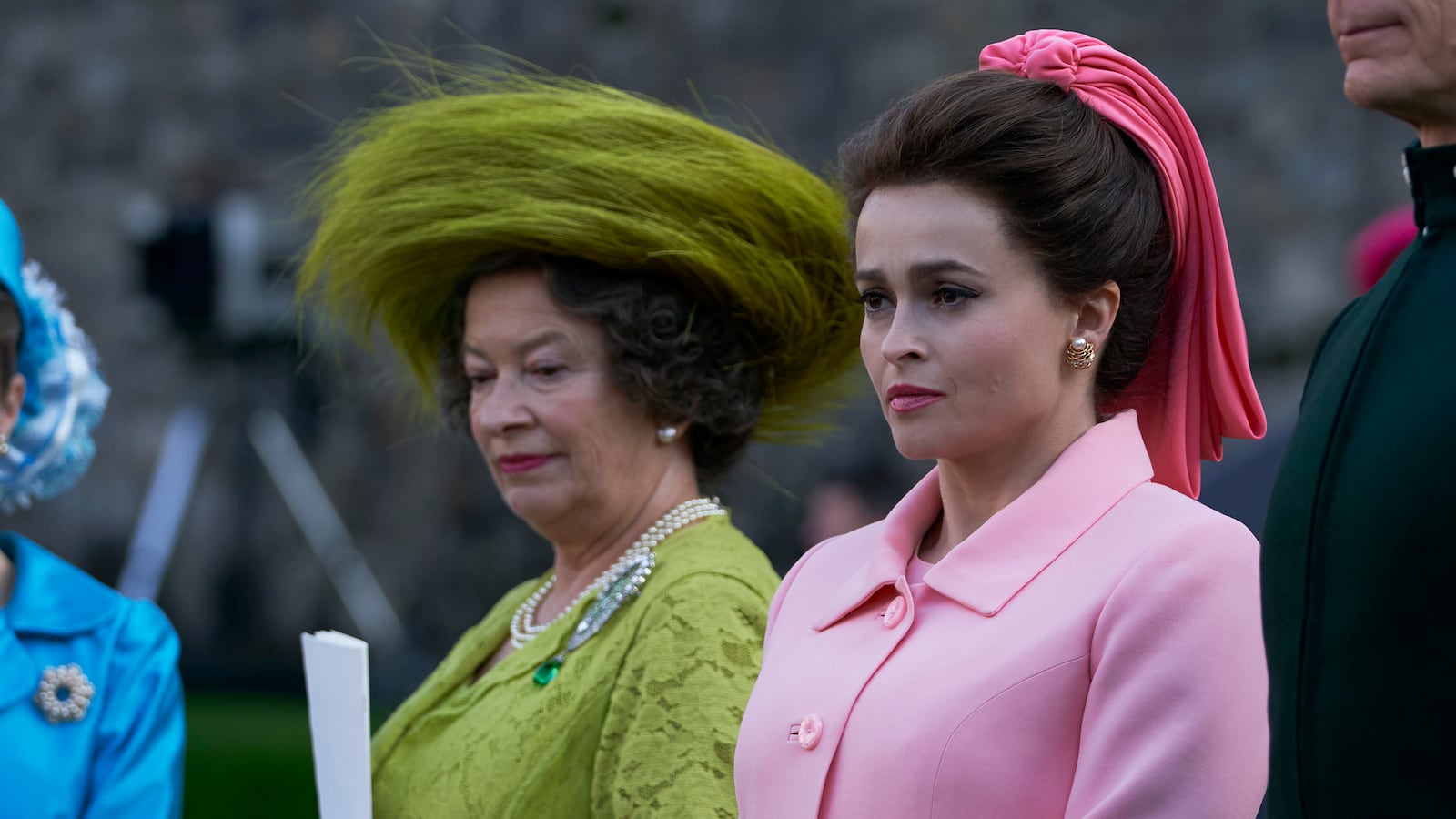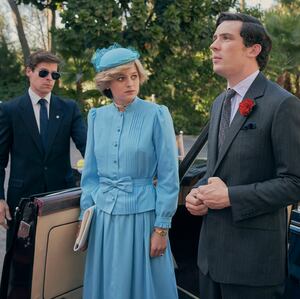A cousin of Princess Margaret has denied that two of the queen’s cousins, Nerissa and Katherine Bowes-Lyon, who were born with severe developmental and learning disabilities and committed to an institution when young, were “abandoned and forgotten” as portrayed in the Netflix series The Crown.
However, David Bowes-Lyon, 73, was unable to explain why, in 1963, the family’s entry in Burke’s Peerage, a guide to the British aristocracy, declared that both women were dead. Bowes-Lyon, the Telegraph reports, “said he believed it was simply a mistake.”
The inconvenient issue of the false entry in Burke’s has previously caused problems for the family. A niece of the sisters, Lady Elizabeth Anson, speaking after a 2011 documentary about the women, The Queen’s Hidden Cousins, on which significant sections of The Crown’s narrative appear to be based, said that their mother Fenella didn’t mean to report her daughters as dead. Anson said Fenella was “a very vague person” who hadn’t filled out Burke’s Peerage documentation “properly or completely.”
The alleged false declaration of death due to excessive vagueness was repeated decade after decade in the annual editions of Burke’s until the existence of the sisters was reported in the media, to widespread astonishment, in 1987.
Bowes-Lyon told the Telegraph that far from being “abandoned,” the two women were visited “frequently” at the Royal Earlswood Hospital in Redhill, Surrey.
In a statement made by Anson in 2011 after the documentary aired, she said Fenella “visited her daughters on a regular basis,” and that “she was the only person whom they recognized. Others did visit but it seems that both ladies were distressed, if not terrified, by such visitors and the nurses asked the family gently if these could be discontinued.”
It appears the wish was readily complied with: Nerissa, who died in 1986, and Katherine, who lived until 2014, were said by nurses interviewed for the 2011 documentary to have had no visits from their family in several decades at the time of Nerissa’s death.
One nurse also alleged that the sisters, who were sent to Earlswood asylum in 1941, four years after Edward VIII’s abdication put their family in the line of succession, didn’t receive any presents or cards on occasions such as birthdays.
“They never received anything at Christmas either, not a sausage,” the nurse said.
It is also a matter of public record that when Nerissa died in 1986, she was buried in a grave marked only by a plastic tag with her name and a serial number. When the story broke a year later following a report in the British newspaper The Sun, the family belatedly erected a headstone.
In the new interview with the Telegraph, Bowes-Lyon is quick to dismiss as fabrication a storyline in the controversial Episode 7, which shows Margaret discovering the fate of the cousins and making a secret mission to check on them. He describes it as “fiction pretending to be fact.”
He says that he himself spoke to Margaret several times about Nerissa and Katherine and she knew the truth of their situation. “We spoke about them when discussing relatives in general, talking over dinner and lunches. She knew exactly who they were and what had happened.”
On this matter, there seems to be no reason to doubt his account: There is no evidence that Margaret (or any other senior royal) ever went on a secret mission to check on the cousins.
The Daily Beast reported this week that Helena Bonham Carter, who plays Princess Margaret, Queen Elizabeth’s troubled younger sister, has said that she believes those involved with the show have a “moral responsibility” to emphasize that the program is not factual.
The fact that Bowes-Lyon is speaking out is a clear sign that the fourth season of The Crown has got under the skin of the establishment in a way that the three previous series, which dealt with events in the ’50s, ’60s, and ’70s, did not.
Oliver Dowden, the culture secretary, has called for the series to carry a disclaimer warning audiences that it is fictional. There has been speculation his move was prompted by concerns within the palace.
Bowes-Lyon told the Daily Telegraph he was speaking out because the episode had caused “frustration” within the family, and that he was one of the few people in a position to be able to say anything publicly.
“I’m probably the only member of the family who could publicly say anything about this,” he said. “It’s more difficult for members of the royal family, and the younger generation was not around.
“I wouldn’t say there is upset in the family, but I think people are frustrated and would like the record put straight. The royals are pretty immune to criticism, but in terms of historical record people should know.”
Bowes-Lyon added, “Quite apart from the family connection, it’s important to make sure that history doesn’t take it as what actually happened.
“I would not like to see anyone in the future refer to it as the truth—and some people do tend to think that.”
Katherine and Nerissa were the third and fifth daughters of John Herbert Bowes-Lyon, the queen mother’s elder brother, and his wife, Fenella.
The Crown depicts the queen mother saying the sisters needed to be locked away out of sight because “their professionally diagnosed idiocy and imbecility would make people question the integrity of the bloodline.”
In 1987, it was revealed three further cousins of the queen (daughters of Fenella’s sister) were sent to the asylum on the same day as the sisters.
Bonham Carter said in a podcast broadcast this week, “The story about Katherine and Nerissa is absolutely true. Whether Margaret had that sense of empathy with them and whether she didn’t know about it, [I have] absolutely no idea. But Katherine and Nerissa and three others were locked up and declared dead when they were very much alive.”





